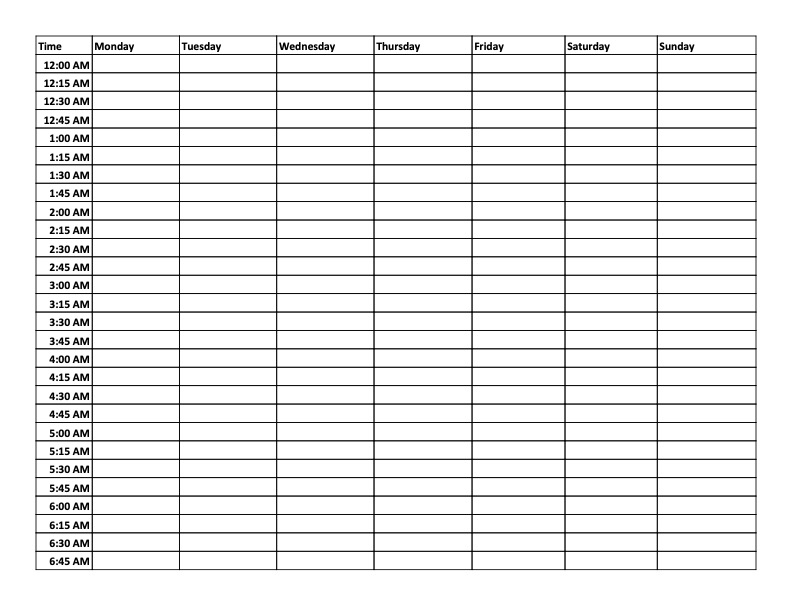We all have 24 hours a day, 168 hours in a week. But how are you spending that time? Here’s how to track your time for a week to find out where it’s going.
“Oh Lord, please give me the ability and energy to finish this project,” I sighed a prayer as I hung up the phone after being internally pressured to say yes, yet again, to another writing project.
It’s just a matter of time management, Bekah, I scolded myself.
You know you’re not at your optimum productivity, and you just need to steward your time better.
But is the issue really always just about time management?
Sometimes, our blind spot is not necessarily that we’re being lazy; it’s that we don’t know how much time we have. The quickest path to burnout is thinking we have more time than we really do.
We all have 24 hours a day, 168 hours in a week. But often we don’t really have a good idea of where all those hours are being spent.
But if we want to be productive—without being overcommitted—it’s vital that we know how we are allocating our time.
Here’s a simple way to get a clear picture of where your time is going.
Track your time for one week
So let’s put the abstract idea into a concrete form. If we want to know how we spend our time, why not track it carefully?
- For 7 days, try tracking your day-to-day activities every 15 minutes.
- Set a recurring reminder on your phone to update the sheet, at a minimum, every 2 hours during the day so you don’t forget what you did.
- Track according to simple categories (e.g. “Sleep,” “Reading,” “Planning,” “Driving,” “TV”, etc.
- Break working hours into smaller categories (e.g. “Meetings,” “Email,” “Distraction,” “Lunch,” etc.)
- Consider bringing a printed time and activity tracking sheet or any other pen and paper. It’s easier to forget about a Google Sheet than a piece of paper you perpetually see on your desk or every time you look in your bag.
Don’t get overwhelmed. You’re only doing this for a week.
You can use this free PDF template to track your time:
Time Tracking Sheet (2083 downloads )
If you’re looking for an all digital option, check out Nir Eyal’s free Schedule maker tool.
Assess your priorities
At the end of the week, go back to the tracking sheet and add up how much time went to every category. Reflect on how the week went and how you spent your time.
- What surprised you?
- Were there activities you spent more time on than you thought you would?
- What were the biggest time wasters in a typical week?
Once you’re able to identify your tasks and activities, try to assess your time allocations for each category. Add up the hours by category then ask yourself these questions:
- What’s being given too much time?
- What’s being neglected?
- Is there anything I need to change with my lifestyle right now?
- Are there things I need to say “no” to?
We can only fit so many activities into a day, and if we’re not intentional in planning how we spend our God-given time, we will often find our days, or even ourselves, inadequate.
But if God has prepared the good works for each of us to walk in (Ephesians 2:10), then we can be confident that He has given us enough time to do those good works. The problems come when we try to do more than God has called us to. That way lies overcommitment and burnout.
Your problem might not be a time management problem at all. It might be a matter of overcommitment. And the only way to get a handle on that is by intentionally assessing where your time is going, then making some changes.
Overcoming Overcommitment

Maybe you’ve realized that you’ve said yes to too many things and that your schedule needs work.
But it can be difficult to unlearn the habit of spreading yourself too thin all by yourself.
Reagan’s course, Overcoming Overcommitment, deals with the principles and practices for addressing this common problem in greater depth. So you can get off of the treadmill and start fully dedicating your time to that which God has specifically called you.


